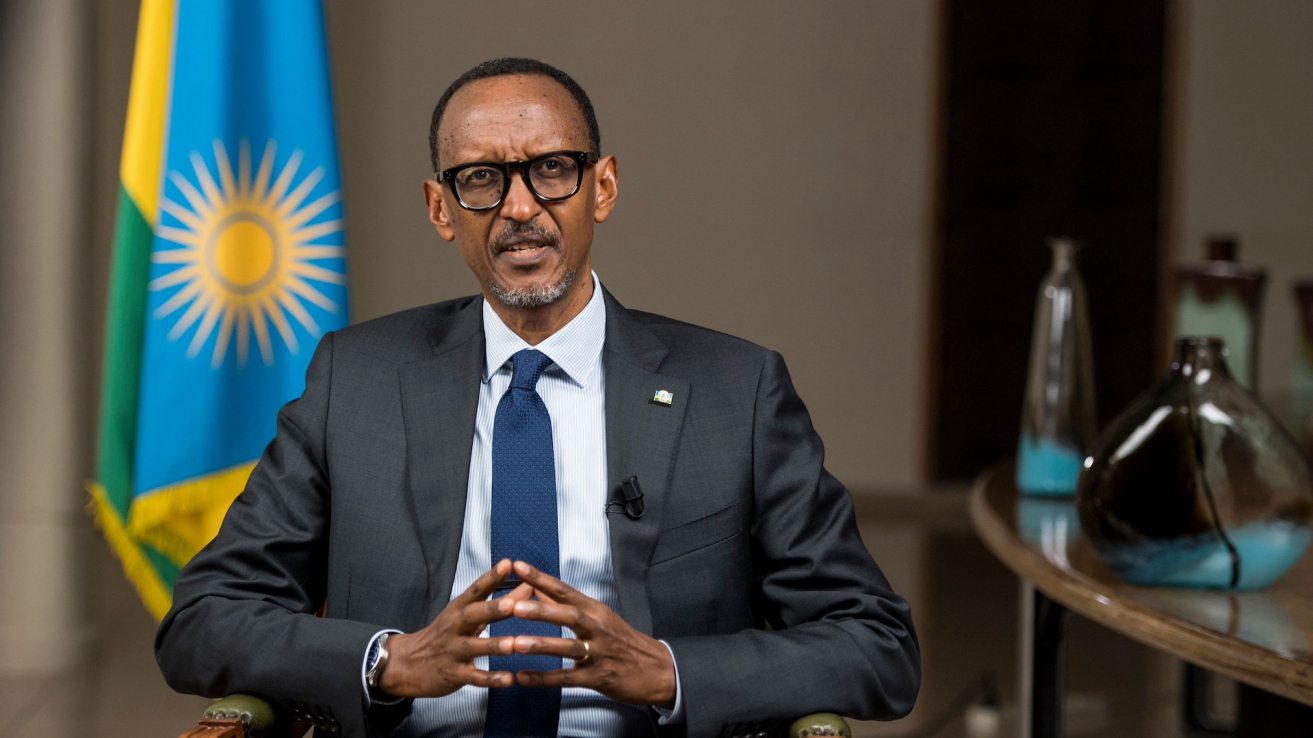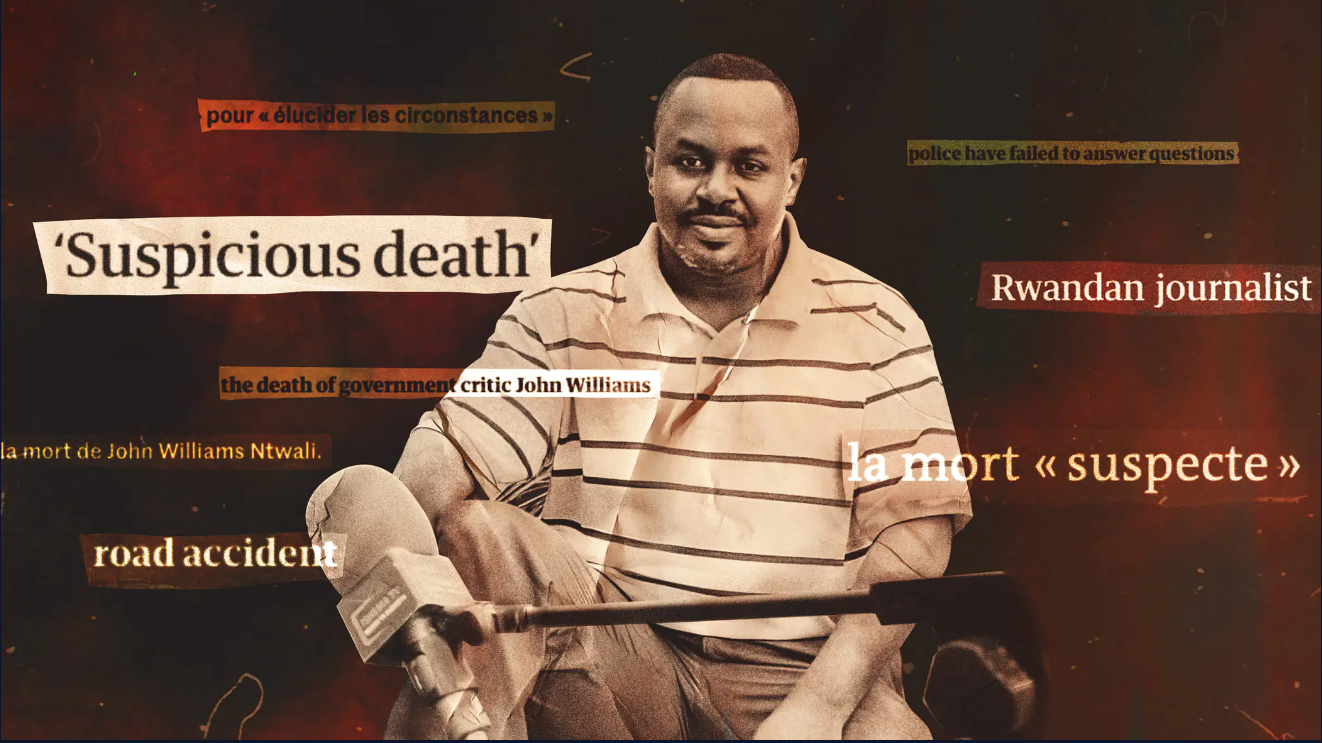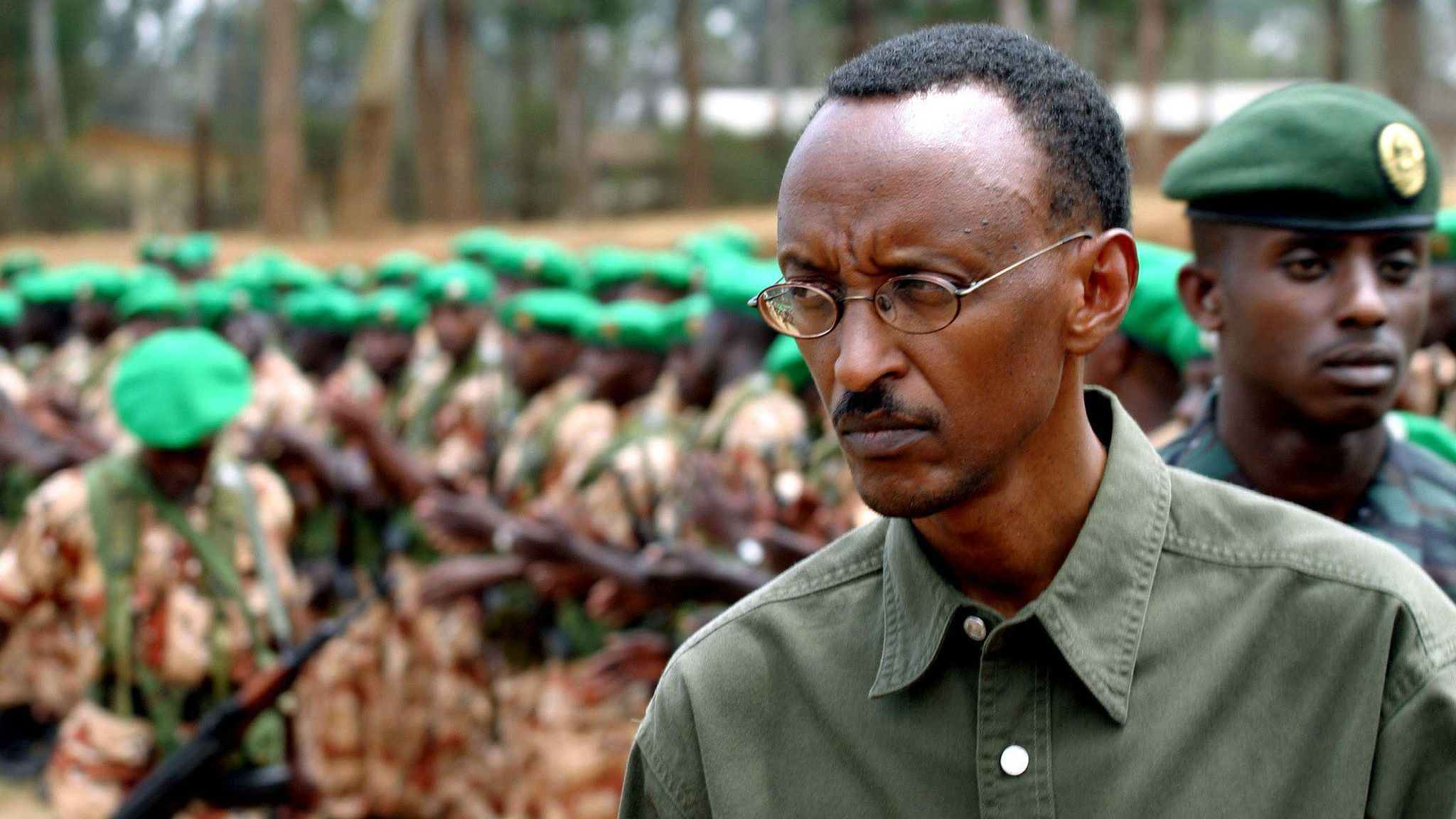
Why Kagame Would Not Win A Free And Fair Election
In a hypothetical scenario where free and fair elections were conducted in Rwanda, it is highly questionable whether Paul Kagame would secure victory.
September 11, 2024In a hypothetical scenario where free and fair elections were conducted in Rwanda, it is highly questionable whether Paul Kagame would secure victory. Following the 15th July presidential and parliamentary elections in the country, Kagame was re-elected with numbers not far from his previous wins, this time 99.15% something that was predictable to anyone who follow Rwandan politics closely. Other Rwandan presidents in history that awarded themselves or rig elections with unrealistic numbers are Grégoire Kayibanda who won in 1965 and 1969 with 100% and Juvénal Habyarimana who won in 1988 with 99.98% making the difference between then and now a similarity in Rwandan politics.
Here is why Kagame would not win a free and fair election, and I’ll delve straight into his USD 500 million money machine—Crystal Ventures.
The ruling Rwandan Patriotic Front (RPF), under its total “Kagame” control, has been marred by corruption and dubious business practices, particularly involving companies like Crystal Ventures. Crystal Ventures, the RPF’s business arm, has a substantial hold over the Rwandan economy. The company controls a significant portion of key industries, including construction, agriculture and telecommunications. This concentration of economic power within a single entity raises serious concerns about transparency, fairness and conflicts of interest. Crystal Ventures benefits from preferential treatment in government contracts creating an uneven playing field that stifles competition and innovation.
The pervasive influence of Crystal Ventures in Rwanda’s economy illustrates a broader pattern of secretive and unethical practices. Moreover, the company’s dominance is sustained by leveraging political connections rather than fostering genuine entrepreneurial growth. This environment undermines the development of a healthy private sector, which is crucial for sustainable economic progress.
The lack of transparency surrounding RPF’s business dealings has contributed to a culture of corruption. Funds intended for public welfare projects are often diverted to these companies, perpetuating inequality and limiting opportunities for ordinary Rwandans.
Now on to Kagame’s foreign policy.
President Kagame’s confrontational foreign policy, which often pits Rwanda against its neighbors and the West, undermines his domestic standing among Rwandans who prefer to have stable relations with their neighbors.
This approach has significantly shaped Rwanda’s international relations and its role on the global stage, but it has also raised critical questions about the long-term implications for the country’s democratic image and regional stability.
The world is made to believe this defiance is rooted in the historical context of the 1994 Genocide against the Tutsi, where the international community, particularly Western powers, was criticized for its inaction. But in reality, Kagame’s fierce rejection of the West is solely based on the fact that they call him out on his dictatorial nature, killing and jailing of opponents, and stifling free speech.
While this assertiveness has helped solidify Kagame’s image as a strong leader, it has also led to strained relationships with key Western allies and donors, who accuse his regime of human rights abuses and suppression of political opposition.
Regionally, Kagame’s foreign policy has been equally confrontational. He has a bone to pick with literally all Rwanda’s neighbors. Rwanda’s relationship with its neighbors, particularly the Democratic Republic of Congo (DRC), Uganda, and Burundi, has been marked by tensions and periodic violent conflicts.
When Uganda accused Kagame of spying, he reacted by closing the border for three years and shooting those who attempted to use porous borders to cross. Usually petty traders and hungry residents who wanted to cross to simply buy or sell food. Jean Pierre Havugimana, 28 was shot by the Rwandan security forces in November 2019 after he was found carrying 50 kilograms of Irish Potatoes from Uganda to Rwanda. It is not an isolated case, on may 3, 2019 Rwanda defense forces shot Innocent Ndahimana a Rwandan resident in Nyakabungo village after he was found smuggling beans to Uganda. In May 2019 also John Batista Kyerengye a resident of Nkoma Cell in Rwanda alongside Alex Nyesiga Atuheire a Ugandan resident were shot dead by Rwandan security operatives in Kiruhura village across the border.
Kagame’s government supports rebels in the Democratic Republic of Congo, M23 in particular and this armed group has committed war crimes, crimes against humanity and rapes on different occasions as it have been documented by independent human rights organizations and even the United Nations group of experts on the DRC. Kagame reacts to any criticism of this by claiming to be protecting national security from cross-border threats. With this narrative, he opens up the idea that each other country in the region is supporting whichever rebel group they see fitting to their concerns.
These regional conflicts have often escalated into armed skirmishes, destabilizing the region and raising concerns among international observers about Rwanda’s aggressive posturing.
President Paul Kagame’s rule over Rwanda has been marked by significant economic progress and stability since the horrors of the 1994 genocide. However, his iron-fisted approach would spell trouble for his reelection prospects if Rwanda were to hold genuinely free and fair elections.
Kagame’s regime has often been criticized for its authoritarian tendencies. Political opposition is severely restricted, with key opposition figures harassed, imprisoned, or exiled. Media freedom is also tightly controlled, ensuring that dissenting voices are seldom heard within the country. Independent Journalists can be forced to exile, arrested or even killed in unclear situations. The recent case is of John Williams Ntwali, who was killed in suspicious circumstances in January 2023 after being threatened by the authorities including the current Minister of Foreign Affaires and International Cooperation of Rwanda Olivier Nduhungirehe.
While Kagame’s supporters argue that his strong leadership has brought unprecedented development and security to Rwanda, these achievements come at a significant cost to democratic freedoms. Many Rwandans may appreciate the economic growth, yet they also harbor frustrations about the lack of political freedoms and the government’s intolerance of dissent.
Let’s also not forget that he is an unchecked nepotist.
Kagame is fond of favoring relatives or close associates for positions of power. One glaring example of nepotism is Kagame’s appointment of his daughter, Ange Kagame, to high-profile roles within the government and influential boards. While Ange Kagame is educated and capable, her rapid rise in the political and social landscape raises concern about fairness and transparency and also wether he “Kagame” is trying to exert or increase his personal influence or grip through his kin and his Son in law the husband to his daughter Ange Kagame, Bertrand Ndengeyingoma fixed in the National Bank of Rwanda among the Chiefs. His son, Ivan Kagame, is a board member at the Rwanda Development Board, and his profile on their website claims that he is a leading investor of an unnamed company. All the other board members have all their establishments and achievements fully detailed. Recently, his younger son Ian Kagame was promoted to a rank of captain in the Rwanda Defense Force in a period of less than two years in military services and promoted to become a presidential bodyguard however those who trained and graduated with him at the rank of second lieutenant (2Lt) remain in lower ranks.
Their appointments are less about qualifications and more about family ties, which undermines the credibility of the administration’s commitment to merit-based appointments.
Additionally, the influence of Kagame’s close relatives in key sectors of the economy further exacerbates these concerns. His wife, Jeannette Kagame, plays a significant role in various foundations and initiatives, which, while ostensibly philanthropic, also consolidate the family’s influence over the country’s social and economic spheres. This intertwining of family interests with state affairs can lead to conflicts of interest and a concentration of power that is unhealthy for a democratic society.
The nepotist list goes on and on, I’ll write about it another day.
RWANDAIR
The national carrier, despite its ambitious expansion and strategic importance, has been mired in debt and has reported losses for over 20 years.
The country’s debt, standing at $4.4 billion in 2019—50 percent of GDP—is largely due to poor economic practices as well as Rwandair’s debt.
Despite significant government subsidies and efforts to expand its fleet and routes, the airline has struggled to achieve profitability. This financial drain raises questions about the effectiveness of Kagame’s economic policies and the allocation of national resources.
No business would survive making losses for 20 years, yet somehow, Rwandair continues to fly. The cost of flying Rwandair is not a pinch felt by the wealthy people in Kagame’s circles but by the poor nationals who are forced to go and chant his praise at campaign shams.
The presence of multiple white elephant projects and manipulated economic figures is also a concern rarely talked about in Rwanda. One prominent example of a white elephant—you might not believe this—is the Kigali Convention Centre. Despite its grandeur, the center has struggled to generate the anticipated economic benefits and return on investment, representing a significant misallocation of public funds. Rwanda had to issue a Eurobond to finance it.
Many projects exist in Rwanda, and while visually impressive, they do little to improve the daily lives of ordinary Rwandans, who continue to face economic challenges and inadequate public services.
Then comes the reliability of Rwanda’s economic statistics. The government has been accused of inflating growth figures to paint an overly optimistic picture of the country’s economic health and government priorities. For instance, reports of double-digit GDP growth contrast sharply with the reality of high unemployment, high inflation, and persistent poverty among the populace. In 2015, France 24 reported that Kigali.
had fiddled with its economic statistics and also In 2019 the Financial Times investigation reveled that Rwanda manipulated its poverty statistics. These “cooked figures” create a misleading narrative of prosperity that fails to address underlying socio-economic issues. Keep in mind GDP only says something about the growth of the economy, but nothing about its origins for example the raw materials from the Democratic Republic of Congo, nor about the distribution of that income. The Gini index is an indicator of wealth distribution, and Rwanda scores only a meager 43.7 and is part of the group of 35 countries in the world with the least income equity (the highest Gini index). This means that all the wealth is concentrated in the hands of a smaller group of rich people. In Rwanda we all know who that group is: those who are in power, the RPF and Kagame’s associates! They manage our country as their private property.
No surprise that Uganda has a comparable Gini index (42.7). Yoweri Kaguta Museveni has built his economic empire too without caring for income equality and Kagame has copied that system.
Another major grievance is the high unemployment rate according to the official statistics standing at 18 per cent and youth at 21 per cent. Many young Rwandans struggle to find gainful employment, leading to frustration and a sense of disenfranchisement. This discontent could drive the youth vote towards opposition candidates promising job creation and economic reforms if this was not a sham of an election.
Another source of unhappiness in Rwanda is the lack of political freedoms and the suppression of dissent. Many Rwandans yearn for a more open and democratic society where they can freely express their views without fear of retribution. The persistent crackdown on political opponents and media censorship undermine these aspirations, creating a groundswell of desire for change.
It was obvious that Kagame was to claim a fourth term because, well, it’s a controlled election by RPF officials, keep in mind that Oda Gasinzigwa the chairperson of the National Electoral Commission is a senior carder of the riling party RPF.
Kagame have always been making a statement “We have our own understanding of democracy, based on the unique reality of Rwandans” and what you need to ask yourself is who is “we” he is always referring too? The way he says it, it may sounds like “we Rwandans, have our own understanding” but in reality it is “We, RPF leadership” and ordinary Rwandans do not seem to be given the right to understand democracy in their own way. And what is this unique reality of Rwanda? Is it because of RPA’s military victory in 1994 that 30 years later no other opinion can be tolerated? Then with this reality it is an insult to all Rwandans to call the Kagame dictatorial
governance a democracy. And again with this reality Rwandans would vote of an opposition candidate if elections were free and fair.
As we get out of the 15th July sham election the opposition figures considered threat to Paul Kagame including Bernard Ntaganda, Ingabire Umuhoza Victoire were not allowed to run and Diane Shima Rwigara presidential candidature was denied by the electoral commission for the second time. While Frank Habineza and Philipe Mpayimana who were both Kagame’s opponents in the 2017 presidential elections and shared less than 2% of the votes, and this time shared 0.85% were once again used as “Justifiers” for the free elections in 2024 presidential elections. The two can never be seen as a potential alternatives in the current Rwanda but are willing fully playing that role, knowing the outcomes from beforehand which makes them accomplices in undermining democracy instead of “Justifiers” of democracy a practice that benefit them with political positions and money form the Kagame corrupt regime.
If the elections were free and fair, the electorate would have a chance of favoring an opposition candidate who pledges to dismantle the RPF’s economic stranglehold, promote transparency, democracy, and foster an inclusive and competitive business environment.
See Also:

Bribery, Lashes, Death And TVE...
Rehabilitation or transit centers are spread across different parts of Rwanda. As per official narra...
Articles
Why Kagame Would Not Win A Fre...
In a hypothetical scenario where free and fair elections were conducted in Rwanda, it is highly ques...
Commentary & Analysis
Denying A Genocide By Investig...
They are going to say that we deny the genocide,” the colleague at Forbidden Stories – the project o...
The Rwanda Classified Project Investigations
Kagame’s Dual Grip: Repression...
Paul Kagame's regime in Rwanda is a striking example of how modern autocrats keep a firm hold on pow...
Commentary & Analysis